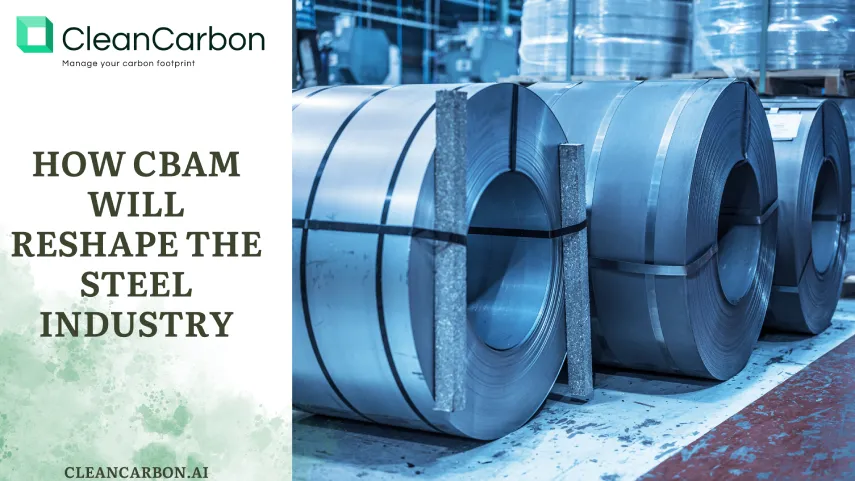The steel industry is a major target for the EU’s Carbon Border Adjustment Mechanism (CBAM). This newsletter dives into the potential impact of CBAM on steel production and explores how businesses can navigate this changing landscape.
Challenges for Steelmakers:
- Cost Pressures: Steel producers with high carbon footprints will face significant cost increases due to CBAM charges. This could squeeze profit margins and potentially lead to price hikes for consumers.
- Shifting Supply Chains: EU buyers might prioritize steel imports from countries with stricter environmental regulations, putting pressure on traditional suppliers who haven’t decarbonized their production processes.
- Administrative Burden: Complying with CBAM’s reporting and verification requirements will add a new layer of complexity for steel exporters.
Opportunities for Innovation:
- Decarbonization Drive: CBAM creates a strong incentive for steelmakers to invest in cleaner production technologies like electric arc furnaces and carbon capture, utilization, and storage (CCUS).
- Market Differentiation: Steel producers with demonstrably low carbon footprints can command a premium price in the EU market, positioning themselves as sustainability leaders.
- Collaboration Potential: CBAM could foster collaboration between EU and non-EU steelmakers to develop and implement best practices for low-carbon steel production.
Expert Insights:
- CBAM presents a challenge, but also a tremendous opportunity. By embracing innovation and collaboration, the steel industry can emerge stronger and more sustainable.
- The key for steelmakers is to be proactive. Start calculating your carbon footprint now and develop a clear roadmap for decarbonization to minimize CBAM costs in the long run.
The Road Ahead:
The steel industry is at a crossroads. CBAM can act as a catalyst for much-needed change, driving innovation and accelerating the transition to low-carbon steel production. By embracing this challenge, steelmakers can ensure their long-term competitiveness in a future increasingly focused on sustainability.
Stay tuned for future newsletters where we’ll explore CBAM’s impact on other sectors!






